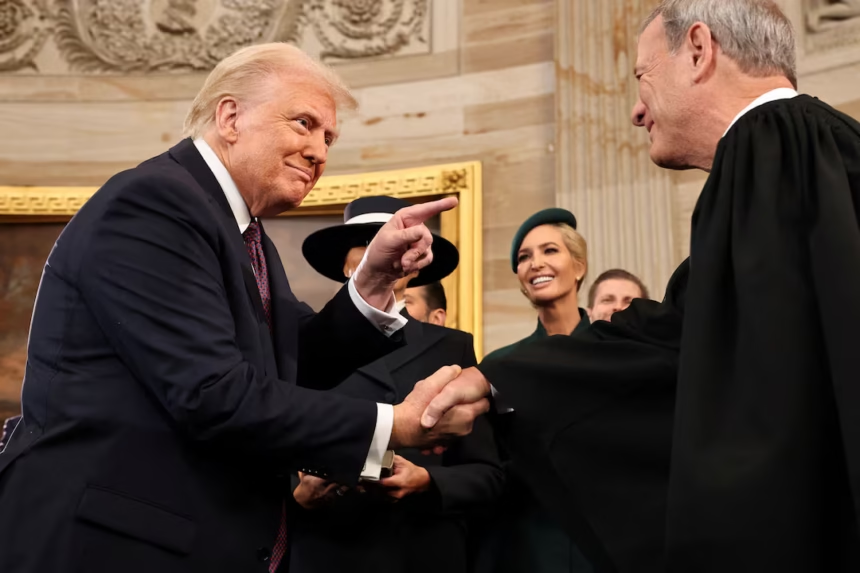For two of the most powerful figures in the United States, Donald Trump and Chief Justice John Roberts, the relationship has been a delicate balance from the beginning. In 2015, Trump harshly criticized Roberts, calling him “disgraceful” and “disappointing” for upholding the Affordable Care Act (Obamacare), which Trump later sought to repeal.
Yet, a little over a year later, Roberts swore in Trump as president, seemingly putting their tension aside for the moment. Since then, their dynamic has been marked by both victories and setbacks for Trump, often accompanied by clashes over their differing views on the role of the judiciary in the Trump administration’s policies.
Recently, Roberts publicly rebuked Trump for calling for the impeachment of a federal judge over a dispute involving deportation flights, emphasizing that impeachment was not an appropriate response to judicial disagreements. Roberts’ critique puts him in a difficult position, as Trump’s supporters have sharply criticized him.
Legal experts suggest that Roberts, though a conservative, is deeply concerned about the Supreme Court’s institutional credibility, and Trump’s approach to governance, which often dismisses legal constraints, challenges the Court’s role in American democracy. Roberts’ leadership has been pivotal in many of the Court’s decisions, including key rulings that both helped and constrained Trump’s presidency.
During Trump’s first term, Roberts authored a number of rulings that were significant for the president, including upholding Trump’s travel ban and ruling in his favor on a landmark immunity case related to his 2020 election challenges. However, Roberts has also sided with the liberal justices on several critical issues, blocking Trump’s census question and supporting rulings that protected immigration programs like DACA.
In the face of these legal and institutional challenges, Roberts’ role will be crucial as the judiciary continues to navigate the tensions between the Trump administration’s executive actions and the courts’ authority to uphold constitutional principles. Legal scholars predict that Roberts may be faced with even greater challenges in the near future, including the Trump administration’s increasing defiance of court orders, which could test the limits of judicial power.
As the legal battles continue to unfold, Roberts’ actions in defending the judiciary’s independence may become even more pivotal in preserving the balance of power between the branches of government.







